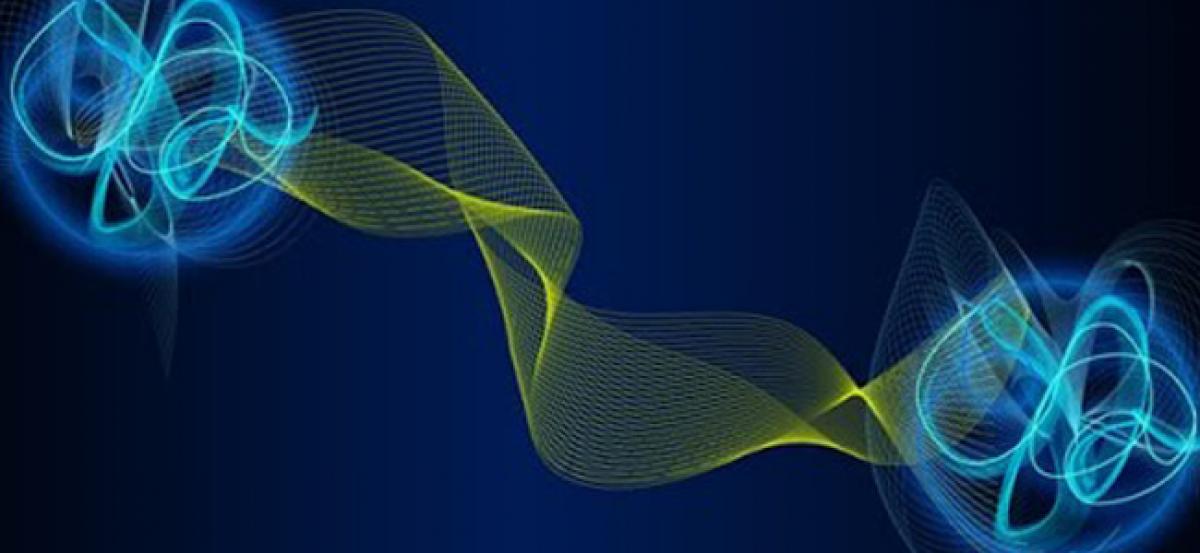Live
- Gold rates in Visakhapatnam slashes, check the rates on 19 April 2024
- Filing of nomination commences
- Gold rates in Vijayawada slashes, check the rates on 19 April 2024
- Adireddy Srinivas files nomination
- Hyderabad: 42 candidates file nominations on first day
- Sharmila accuses CM of living in ivory tower
- Gurumoorthy appears to be ahead of pack
- CM bus yatra draws huge crowds
- From a doctor to a politician, Thanuja Rani looks forward to serve society
- Hyderabad: ‘Modi govt contributed Rs10 lakh cr for TS development in a decade’
Just In

For the first time, China has successfully sent pairs of entangled photons from a satellite in orbit to three ground stations in the country each separated by more than 1,200-km, in a major breakthrough that opens up prospects for practical quantum communications.
For the first time, China has successfully sent pairs of entangled photons from a satellite in orbit to three ground stations in the country each separated by more than 1,200-km, in a major breakthrough that opens up prospects for practical quantum communications.
The photon pairs were demonstrated to be still entangled after travelling long distances. The achievement was based on the world's first quantum satellite, Quantum Experiments at Space Scale (QUESS), also dubbed Micius, launched by China on August 16, 2016 Quantum entanglement is a phenomenon in quantum physics, which is so confounding that Albert Einstein described it as "spooky action at a distance" in 1948.
Quantum entanglement is a physical phenomenon that occurs when pairs or groups of particles are generated or interact in ways such that the quantum state of each particle cannot be described independently of the others, even when the particles are separated by a large distance instead, a quantum state must be described for the system as a whole.
When a pair or group of particles can only be described by the quantum state for the system, and not by individual quantum states, we say the particles are "entangled.” Entanglement between particles happens because little particles can push and pull on each other, just like big objects do in terms of gravity. If nothing else is acting on those particles, then there are certain things before and after the particles act on each other that have to stay the same.
For example, the total momentum of both particles put together would be (roughly) the same before and after they act on each other. Quantum entanglement is one of the concepts that led Albert Einstein to dislike the theory of quantum mechanics. Quantum is a Latin word that means 'how much'. So a quantum of energy is a specific amount of energy.
Light sources such as candles or lasers shoot out (or "emit") light in bits called photons. Photons are like packets. Each one has a certain little bit of energy. QP is a mathematical framework (rules written in Maths) for much of modern physics and chemistry.
Quantum mechanics helps us make sense of the smallest things in nature like protons, neutrons and electrons. Complex mathematics is used to study subatomic particles and electromagnetic waves because they act in very strange ways. Quantum mechanics is important to physics and chemistry.

© 2024 Hyderabad Media House Limited/The Hans India. All rights reserved. Powered by hocalwire.com







